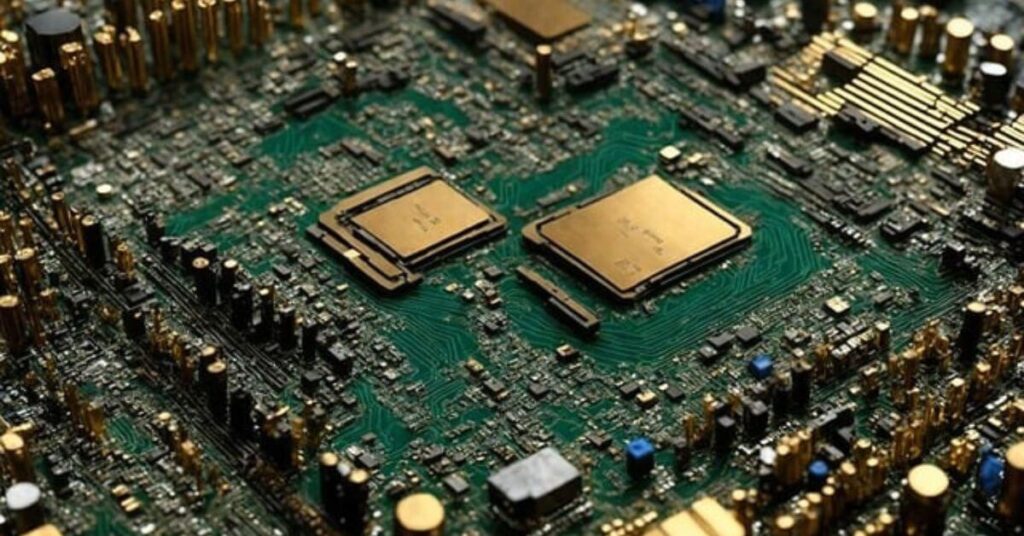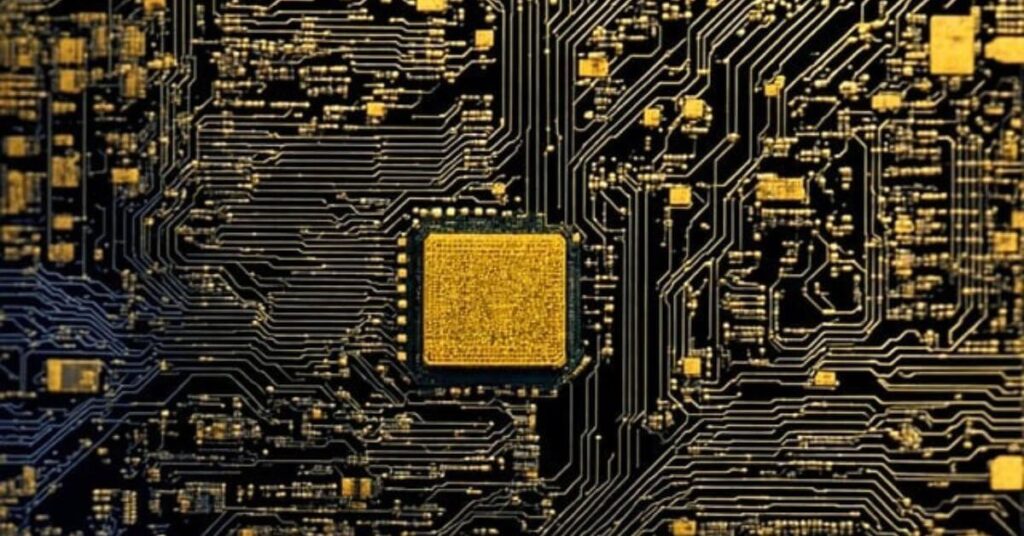The BIOS and its relationship with the motherboard. Whether you’re a seasoned tech enthusiast or a casual user, understanding how can BIOS affect motherboard performance is crucial for ensuring a smooth computing experience.
Basic Input/Output System, or BIOS for short, is the software that essentially powers up your computer and sets up its hardware. It serves as a link between the hardware and your operating system, ensuring that everything functions properly as soon as you press the power button.
But here’s the catch if your BIOS isn’t up to snuff, it could spell trouble for your motherboard and the overall performance of your system. we’ll know how BIOS issues can impact your motherboard, the potential risks involved, and what you can do to keep your system running smoothly.
Table of Contents
Understanding the relationship between BIOS and motherboard

The motherboard of our computer connects and manages all of the other parts of the system, acting as the command center. The BIOS is at the center of this complex ballet, silently executing background tasks to guarantee everything functions properly.
Consider the BIOS to be the conductor of an orchestra, guiding the boot process and ensuring that every hardware component (or instrument) plays its part in unison. Your computer’s BIOS activates when you hit the power button, starting up the peripherals, CPU, RAM, and storage drives among other hardware components, and running several diagnostic tests.
But why is this relationship so crucial? Well, without a properly functioning BIOS, your motherboard wouldn’t know how to communicate with the rest of your system. It’s like trying to have a conversation with someone who speaks a different language – things just wouldn’t work as they should.
Also, the BIOS is essential in guaranteeing that various hardware parts are compatible. BIOS updates are frequently made available to provide compatibility for new devices as they are introduced to the market as technology advances. In the absence of these updates, compatibility problems may arise that impair system functionality or even prevent it from starting at all.
Essentially, the motherboard and BIOS function together as a team to maintain the proper operation of your computer. Thus, the next time you turn on your computer, pause to recognize the silent but crucial part the BIOS plays in making sure everything functions as it should.
Further reading: What happens if there is no BIOS?
How BIOS can affect motherboard performance?
The BIOS might seem like a small piece of software compared to the other flashy components in your computer, but don’t let its humble appearance fool you – it wields considerable influence over your motherboard’s performance.
1. Compatibility concerns
One of the most common ways the BIOS can affect motherboard performance is through compatibility issues. As new hardware components hit the market, manufacturers release BIOS updates to ensure compatibility with these devices. If your BIOS isn’t up to date, you might encounter compatibility issues that can slow down your system or even cause it to crash.
2. Stability struggles
A malfunctioning or outdated BIOS can also lead to stability issues. Picture this: you’re in the middle of an important task when suddenly your computer freezes or crashes for no apparent reason. Often, the culprit behind these stability problems is a faulty BIOS. Whether it’s due to incorrect settings or corrupted firmware, a problematic BIOS can wreak havoc on your system’s stability.
3. Performance problems
Your BIOS also plays a role in determining your system’s overall performance. Incorrect BIOS settings, such as suboptimal CPU or memory configurations, can lead to slower performance or reduced efficiency. It’s like driving a car with the parking brake on – you might still get where you’re going, but it won’t be as smooth or efficient as it could be.
4. Update woes
Updating your BIOS might seem like a straightforward task, but if done incorrectly, it can lead to a world of trouble. A botched BIOS update can render your motherboard unusable, effectively turning your computer into an expensive paperweight. That’s why it’s crucial to follow the manufacturer’s instructions carefully and proceed with caution when updating your BIOS.
Risks of BIOS malfunction

While the BIOS is essential for your motherboard’s operation, it’s not without its risks. Here are some potential pitfalls to be aware of:
- System instability: A malfunctioning BIOS can lead to system instability, causing your computer to freeze, crash, or behave erratically. This instability can disrupt your workflow and make it difficult to rely on your computer for important tasks.
- Hardware damage: In rare cases, a malfunctioning BIOS can cause physical damage to your motherboard and other hardware components. For example, if the BIOS sends incorrect voltage or clock settings to the CPU or RAM, it could potentially fry these components, rendering them unusable.
- Boot failure: If the BIOS becomes corrupted or improperly configured, it can prevent your computer from booting up properly. This can leave you with a black screen or endless boot loop, making it impossible to access your files or use your computer.
- Data loss: In extreme cases, a BIOS malfunction can result in data loss. For example, if the BIOS becomes corrupted during a firmware update, it could potentially overwrite critical system files or damage the file system, leading to data loss.
- Difficulty in recovery: Recovering from a BIOS malfunction can be challenging, especially if your computer won’t boot up at all. In some cases, you may need to physically remove the BIOS chip from your motherboard and reflash it using specialized hardware, which can be a complicated and risky process.
Recommended methods and solutions
Dealing with BIOS-related issues requires a combination of caution, knowledge, and proactive measures. Here are some solutions and best practices to help you navigate the world of BIOS with confidence:
1. Regular updates
Keep your BIOS up to date by regularly checking for updates from your motherboard manufacturer’s website. These updates often include fixes for compatibility issues, performance improvements, and security patches. Just be sure to follow the manufacturer’s instructions carefully when updating your BIOS to avoid any mishaps.
2. Backup your BIOS
Before updating your BIOS, consider backing up your current BIOS settings. Many motherboards offer the option to save your BIOS settings to a file, which you can then restore if anything goes wrong during the update process. This can help prevent data loss and make it easier to recover from a failed update.
3. Proceed with caution
When updating your BIOS, proceed with caution and avoid interruptions. Make sure your computer is plugged into a reliable power source, and avoid shutting it down or restarting it during the update process. Interruptions during BIOS updates can result in a corrupted BIOS, which can be difficult to recover from.
4. Read release notes
Spend some time reading the release notes that the manufacturer has given before updating your BIOS. These comments frequently include crucial details regarding the modifications made in the update, along with any known problems or compatibility difficulties. This can assist you in deciding whether to move forward with the update or not.
5. Seek professional advice
Don’t be afraid to ask for assistance from professionals if you have any questions or concerns regarding updating your BIOS. Numerous computer repair companies can assist you in securely and effectively navigating the BIOS upgrade procedure and provide their services. When it comes to BIOS updates, it’s best to be safe than sorry, particularly if you’re unfamiliar with the procedure.
Conclusion
The BIOS is essential to the operation and efficiency of your motherboard and computer system overall. The BIOS is crucial for making sure everything functions properly as soon as you turn on your computer, from initializing hardware components to enabling communication between the operating system and hardware.
However, there are hazards associated with the BIOS. Compatibility problems, stability issues, and even physical damage to your motherboard and other hardware components might result from an outdated or misconfigured BIOS. To reduce the dangers, you must take proactive steps to maintain and upgrade your BIOS regularly while adhering to best practices.
By staying informed about BIOS updates, backing up your settings, proceeding with caution during updates, and seeking professional help when needed, you can mitigate the risks associated with BIOS-related issues and ensure that your computer system remains reliable and efficient.
So, the next time you encounter performance issues or instability with your computer, don’t overlook the role that the BIOS plays. Take the time to investigate and address any BIOS-related issues, and you’ll be well on your way to maintaining a healthy and functional computer system for years to come.
